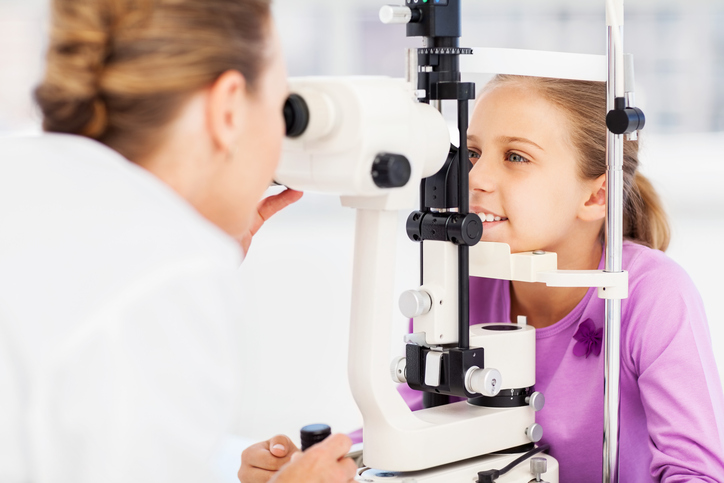Children's Eye Exams
The importance of an eye exam for children and infants
Since many eye problems arise from conditions that can be identified by an optometrist in an infant’s first year of life, a parent can give a child a great gift by seeking an eye assessment in addition to the wellness evaluation of the eyes that is done by a pediatrician or family doctor. Young children can be assessed for various eye conditions and do not need to be able to answer questions or know the alphabet in order to have an eye exam. Different tests and methods are used depending on the age and ability of the child.
Our office is a part of the Eye See Eye Learn program that allows all Junior Kindergarten children who need glasses, a free pair of glasses. There is also the Eye M Growing program for children 16 and under that allows 2 sets of lenses for the price of one and the 2nd set can be used at a later date with a different prescription.
Myopia Control:
Computer use and the progression of myopia is a common concern for today’s parents. We have various options and strategies to help parents learn about and help manage this process. We offer the Mysight soft contact lenses which are the newest and safest option for young children now. Please ask us if this is something that is of interest to you.
Vision Therapy:
Difficulty reading and concentrating is commonly thought to be a trait some kids have to live with. Did you know that certain conditions that affect the ability of the eyes to work together mimic a child who has attention problems? Imagine how hard it would be to read if your eyes could see but didn’t work properly together. Please speak to us about any concerns you may have about your child’s abilities in school especially if they have an IEP as there are often conditions related to vision that can be helped with vision therapy.
How often should I get an eye exam?
Children and teens 19 and under are covered by OHIP for annual exams. This is certainly recommended as children grow quickly and a lot can change at this time. Children often do not know the difference between good and poor vision and may not know to bring this to anyone’s attention. Doing routine eye assessments will help to pick up any vision changes that can be affecting your child and their ability to perform at school. Infants between six and 12 months of age can be assessed especially if there are any specific concerns or family history of eye conditions. It is recommended to determine if an infant is at risk for eye or vision disorders. Children should at least have had one eye examination by the age of three, and then every year after that.

